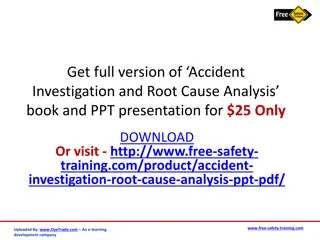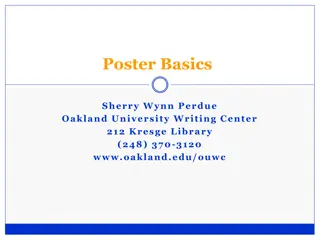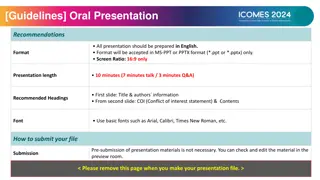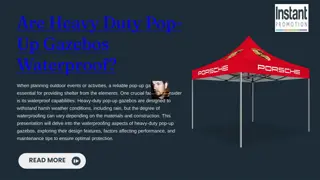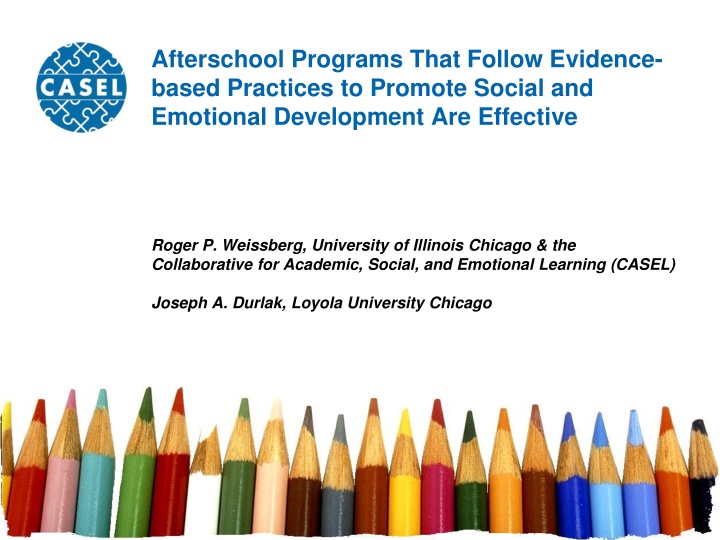
Social-Emotional Learning Benefits in Afterschool Programs
Discover the effectiveness of afterschool programs promoting social and emotional skills, based on evidence-backed practices. Learn about SEL processes, Illinois K-12 standards, and key questions for 21st-century education goals.
Download Presentation

Please find below an Image/Link to download the presentation.
The content on the website is provided AS IS for your information and personal use only. It may not be sold, licensed, or shared on other websites without obtaining consent from the author. If you encounter any issues during the download, it is possible that the publisher has removed the file from their server.
You are allowed to download the files provided on this website for personal or commercial use, subject to the condition that they are used lawfully. All files are the property of their respective owners.
The content on the website is provided AS IS for your information and personal use only. It may not be sold, licensed, or shared on other websites without obtaining consent from the author.
E N D
Presentation Transcript
Afterschool Programs That Follow Evidence- based Practices to Promote Social and Emotional Development Are Effective Roger P. Weissberg, University of Illinois Chicago & the Collaborative for Academic, Social, and Emotional Learning (CASEL) Joseph A. Durlak, Loyola University Chicago
Review of K to 12 Afterschool Programming Durlak, J. A., Weissberg, R. P., & Pachan, M. (2010). A meta-analysis of after-school programs that seek to promote personal and social skills in children and adolescents. American Journal of Community Psychology, 45, 294-309.
Review of K to 12 During-School Programming Durlak, J. A., Weissberg, R. P., Dymnicki, A. B., Taylor, R. D., & Schellinger, K. (2011). The impact of enhancing students social and emotional learning: A meta-analysis of school- based universal interventions. Child Development, 82, 405-432.
Key Questions about the Goals for 21stCentury Education What do we want students to be, to know, and to do by the time they graduate from high school in order to thrive in the 21stCentury? How can an entire community be organized to ensure that all students reach the stated goals?
Social and Emotional Learning (SEL) SEL involves processes through which children and adults develop fundamental emotional and social skills: 1. To understand and manage emotions 2. Set and achieve positive goals 3. Feel and show empathy for others 4. Establish and maintain positive relationships 5. Make responsible decisions
Illinois K to 12 SEL Student Learning Standards 1. Develop self-awareness and self-management skills to achieve school and life success. 2. Use social awareness and interpersonal skills to establish and maintain positive relationships. 3. Demonstrate decision-making skills and responsible behaviors in personal, school, and community contexts.
Focus of the Review 68 afterschool programs with data at post Program goals: Promoting social-emotional skills Included studies: Control group present Out of school hours Operate during the school year 7 Free powerpoint template: www.brainybetty.com
Why This Review is Important Prior afterschool program reviews have not focused primarily on student social- emotional development Large number of programs evaluated 68% of program reports appeared > 2001 8 Free powerpoint template: www.brainybetty.com
Research Questions What types of outcomes can afterschool programs foster in youth? Can we identify the program features that lead to better youth outcomes? 9 Free powerpoint template: www.brainybetty.com
Findings Overall, afterschool programs are effective Youth benefit in three areas Feelings and attitudes Behavioral adjustment School performance 10 Free powerpoint template: www.brainybetty.com
Student Outcomes: Programs Overall Positive Results for: Feelings and attitudes Child self-perceptions School bonding Behavioral adjustment Positive social behaviors Problem behaviors Reduced drug use School performance Attendance School grades Achievement test scores 11 Free powerpoint template: www.brainybetty.com
Student Outcomes: SAFE and OTHER Programs Feelings and attitudes Child self-perceptions School bonding Behavioral adjustment Positive social behaviors Problem behaviors Reduced drug use School performance Attendance School grades Achievement test scores SAFE programs: Other programs:
Which Programs are Effective? Programs that used evidence-based skill training approaches were successful in all outcome areas. Programs that did not use these approaches did not deliver significant benefits to youth in any outcome area. 13 Free powerpoint template: www.brainybetty.com
SAFE Programs are Effective Sequential: Sequenced activities to teach skills Active: Active learning to practice skills Focused: Focused time on skill development Explicit: Explicit targeting of specific skills 14 Free powerpoint template: www.brainybetty.com
Conclusions and Recommendations Quality afterschool programs can improve a range of important student learning and developmental outcomes. Programs that promote social-emotional development can also improve school performance. If programs intend to be successful, both program content and process are important. SAFE programs produce positive student outcomes. 15 Free powerpoint template: www.brainybetty.com
Policy Implications We should invest in evidence-based afterschool programs that offer broad opportunities to enhance social, emotional, and academic development. We should work hard to improve other programs to help them comport to program models that are effective. We should align effective interventions during the school day with those occurring after school to maximize the benefits for participating youth. 16 Free powerpoint template: www.brainybetty.com
A Final Comment We hope that our analyses of during-school and afterschool SEL research the most comprehensive yet can help educators and other community decision makers establish coordinated quality programming that promotes the social, emotional, and academic learning of children and youth during school, after school, and in the summer. - Weissberg & Durlak (2012)
Thank You! For more information, contact: rweissberg@casel.org jdurlak@luc.edu A brief report and a peer-reviewed article of the findings and other resources are available at: http://www.casel.org 18 Free powerpoint template: www.brainybetty.com













